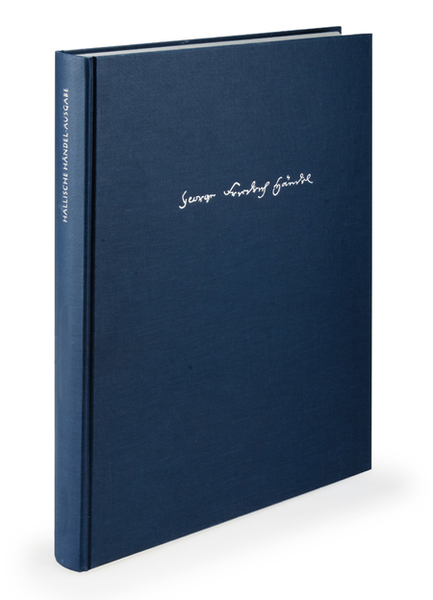Almira, Konigin von Kastilien HWV 1
Opera in three acts
-
Ships in 1 to 2 weeks
Details
Description
SKU: BA.BA04050
Opera in three acts. Composed by George Frideric Handel. Edited by Dorothea Schröder. This edition: complete edition, urtext edition. Linen. Halle Handel Edition (HHA) Series II, Volume 1. Oper, Barock (Opera, Baroque). Complete edition, Score. HWV 1. Duration 3 hours, 30 minutes. Baerenreiter Verlag #BA04050. Published by Baerenreiter Verlag (BA.BA04050).ISBN 9790006443598. 33 x 26 cm inches. Language: German. Text: Feustking, Friedrich Christian.
“Almira”, Handel’s first opera, was well received when premiered in 1705 at the Theater am Gänsemarkt in Hamburg. The director was Reinhard Keiser, who, remarkably, had himself already set Friedrich Christian Feustking’s text to music. The role of Fernando was sung by Johann Mattheson. The translation used by Handel leaves several Italian arias in their original language, resulting in a delightful mixture of German and Italian.
The opera which, after sundry entangled romances, ends in the wedding of three couples, is characterised by exuberant scenes: the procession at Almira’s crowning ceremony, a duel, a prison scene and a masked-ball involving the three continents Europe, Africa and Asia.
The vocal score to “Almira” by George Frideric Handel brings about a small sensation: Whilst conducting a reenactment of this work in 1732, Georg Philipp Telemann removed the Aria no. 28 “Ingrato, spietato” from his conducting score. Since then this aria has been deemed lost. Due to necessity only the edited vocal text devoid of any music was presented in the 1994 volume of the “Halle Handel Edition”.
Thanks to a recently discovered contemporary manuscript copy from the beginning of the 18th century which was found in the music library of the Mariengymnasium in Jever, this aria has now been made available to performers for the first time in this new vocal score edition. Previous to this the corresponding pages could only be seen as a facsimile in an article of the “Göttinger Händel-Beiträge”.
Now the aria can be performed again. Furthermore, with the help of this new source, missing measures in the basso continuo which had initially been completed by the editor of the “Halle Handel Edition” volume, could be reconstructed from the basso continuo part of the Bellante aria “Ich brenne zwar” (no. 71).
About Barenreiter Urtext
What can I expect from a Barenreiter Urtext edition?
MUSICOLOGICALLY SOUND
- A reliable musical text based on all available sources
- A description of the sources
- Information on the genesis and history of the work
- Valuable notes on performance practice
- Includes an introduction with critical commentary explaining source discrepancies and editorial decisions
... AND PRACTICAL
- Page-turns, fold-out pages, and cues where you need them
- A well-presented layout and a user-friendly format
- Excellent print quality
- Superior paper and binding
Song List (10)
- Anhang: Ouverture g-moll HWV deest
- Arien: "Der Mund spricht zwar gezwungen "Nein"" Nr. 22
- "Quillt, ihr uberhauften Zahren" Nr. 55
- "Schonste Rosen" Nr. 9
- "Der Himmel wird strafen" Nr. 45.
- Librettoabdruck in deutscher Sprache (Libretto-Druck: Friedrich Conrad Greflinger, Hamburg 1704) und englische Ubersetzung
- Zur Edition
- Vorwort
- 5 Faksimiles
- Kritischer Bericht

 Share
Share